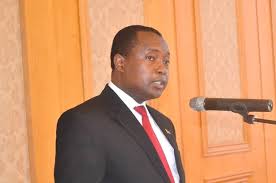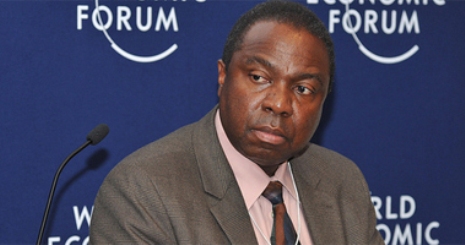The Reserve Bank of Malawi (RBM) Governor Dalitso Kabambe has called for efficient and effective procurement practices to curb misuse of public funds and enhance economic growth.
The governor said this on Friday at the opening of the Malawi Institute of Procurement and Supply (MIPS) Annual Lakeshore Conference in Mangochi under the theme Embracing Modern Concepts: Your Spend is Our Concern.
Kabambe urged procurement professionals to be diligent in safeguarding the prevailing macro-economic stability and endeavor to work hard towards attaining strong prospects of economic growth and sustainable levels of public debt.
His statement comes against the backdrop of an assessment of public procurement system in Malawi carried out from February 2018.
The assessment found that out of 150 respondents from the private sector, 82 percent felt that there are inadequate opportunities for qualified companies to compete fairly for contracts, with 73 percent of the respondents feeling that the complaints review system is not trustworthy and consistent with findings of the case.
Said Kabambe: “Basic macroeconomic theory clearly emphasizes the role of procurement and supply in achieving sustainable economic development.
“The expenditure approach to measuring the gross domestic product [GDP], which is an indicator of the size of the economy, clearly shows that procurement and supply is heavily imbedded in all the components used to measure GDP. This shows that economic growth is largely a result of sound procurement and supply practices.”
Kabambe advised Mips to ensure value for money in all procurements for public and private institutions to get the most from the budgets, saying this needs to be considered in the profession for its maximum contribution towards economic growth.
“The institute has to fight for efficient pricing and allocative efficiency. It is noted that most contracts end up with elevated prices that are different from the initial agreements due to escalation clauses.
“Price adjustment clauses in the addendum of contracts must be carefully scrutinized and understood before the contracts are awarded to suppliers,” he said.
MIPS president Joseph Malawi said the profession is faced with number of challenges, but key among them is that functions of the profession are being done by people who are not professionals in the field.
“Most companies, both private and public, are not employing and do not have personnel with capacity to undertake procurement and supply chain management activities.
“Suffice to say that there are some that are doing well. We want to focus on those that are not doing well to ensure that we are on the same level and are able to deliver to the required standards,” he said.
Public Procurement and Disposal of Assets Authority director general Elias Hausi underscored the importance of best procurement practices, saying through procurement, resources can either be allocated appropriately to serve their intended purpose or not.
He said procurement professionals need to have high levels of accountability and honesty to ensure that resources are rightly distributed in the economy.




